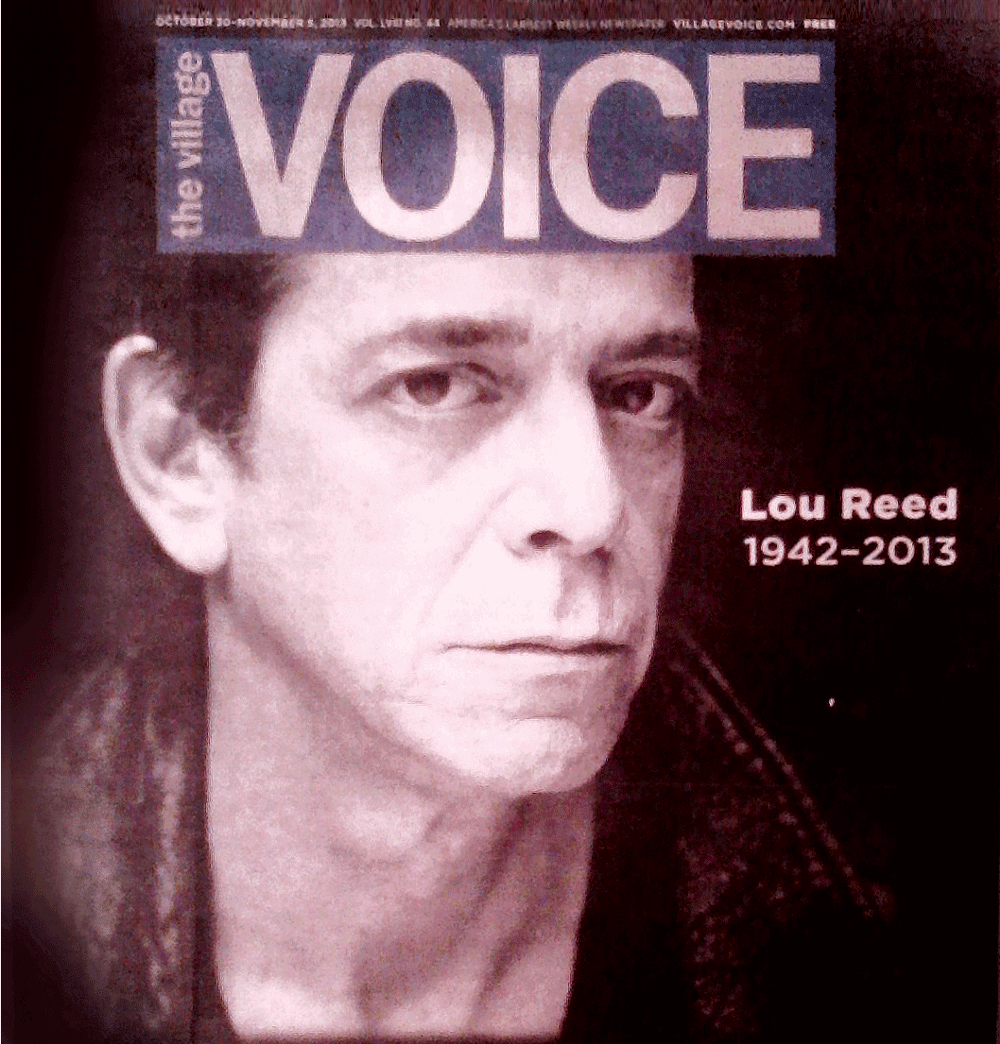That last piece of Velvet
Lou Reed’s face was smashed against the Plexiglas window of a sheet metal newsstand box at the corner of 61st Street and 9th Avenue. He had passed away seven days earlier.
On that seventh day, I was shuffling toward 10th Avenue when the forceful face of the Village voice smacked me. I was as startled as if he had been standing there in the flesh. Two hundred-thousand people must have passed by that spring-loaded contraption since it last had been force-fed newsprint. One hundred copies of The Voice had been left behind for the unwashed, the brilliant, the homeless and the illiterate, each with an opportunity to grab that last piece of Velvet.
Moses in monotone
Lou was the island’s gutter poet, eating the filth that gathers at the edge of a storm drain after a heavy rain. Priest, fortune-teller and fortune seeker, his entire life was wrapped in a leather veneer. Voyeur, addict, artist, man — Lou personified the alternative truth that a great artist doesn’t need to leave a single work of great art in his wake.
Like that last Japanese soldier dying alone in a jungle somewhere in the South Pacific, thirty years after Hiroshima, Reed’s body succumbed to a life and war fought forty years before. Most of his comrades are gone, taken by cliches, disease and the Howl. I mourn the passing of his culture even more than the passing of his soul, knowing that he was one of the longer tentacles on a Portuguese man o’ war that washed up in Union Square long ago.
It’s a Wonderful Life
On Manhattan island, during that week, my mind’s eye envisioned a run on the editorial art-bank of Cooper Square, and every one of its spring-loaded corner outposts, leaving nothing but trash behind. Meat hooks and manicures flailing for a chunk of the real Underground.
I got the last copy.
—

